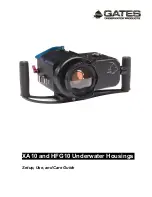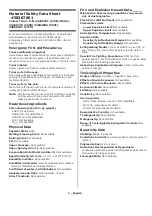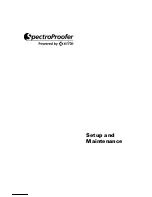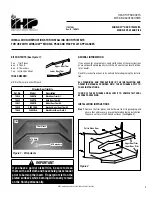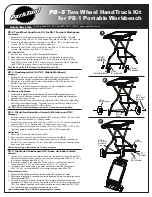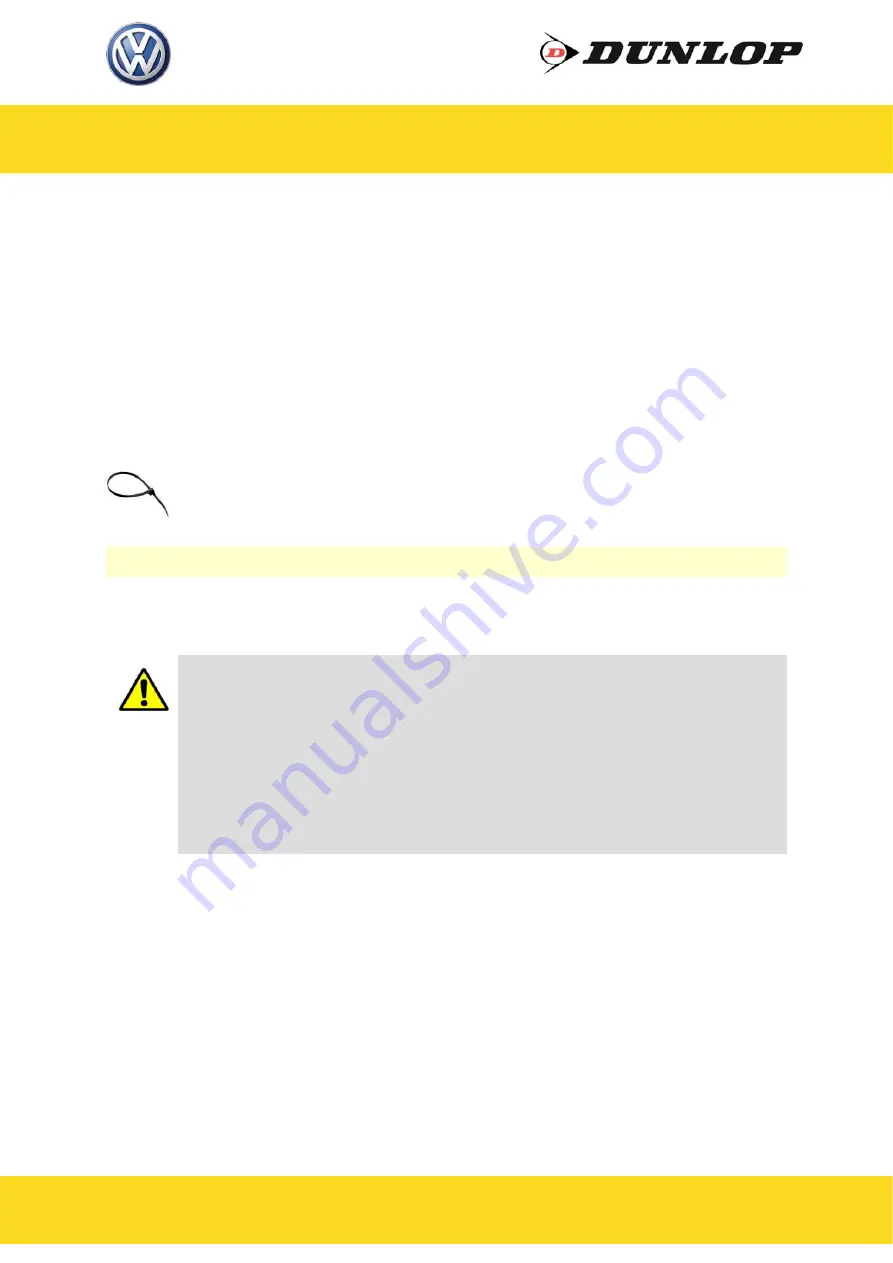
L.AMA.10.C.L
Volkswagen AMAROK
13
DUNLOP and the Flying D Device are trademarks of Dunlop International Group and are used under license by DSC Nederland B.V.
www.dunlopsystems.nl
Routing
Study the underside of the vehicle and decide how to route each branch
of the air circuit…
To minimise the risk of chafing, avoid running tubing over metal
edges as much as possible
Avoid close proximity to heat sources such as the exhaust assembly
Choose a route that provides as much protection as possible from
dirt, debris and any solid objects that may impact the underside of
the vehicle
It is recommended that tubes are guided alongside brake lines as much
as possible.
Use cable ties (‘tie wraps’) to secure tubing to the chassis, taking
care not to over-tighten them.
5.7 Spring Inflation
Once installation of the air assist kit is complete, inflate the springs to
achieve the desired ride height via the inflator console taking careful note
of the following...
Maximum and Minimum Pressure
Maximum Pressure 7.0bar
Minimum Pressure 0.5bar
Do not exceed 7.0bar (101psi), which is the recommended
maximum charge pressure for the air springs.
The springs may be deflated if the vehicle is to be stored for a
lengthy period without use, but a pressure of at least 0.5bar
(7.25psi) should be maintained at all times in order to avoid
possible compression damage to the springs.
With the vehicle standing at the desired ride height, it is recommended
that the height of the bellow itself should be between 18cm and 22cm.





















